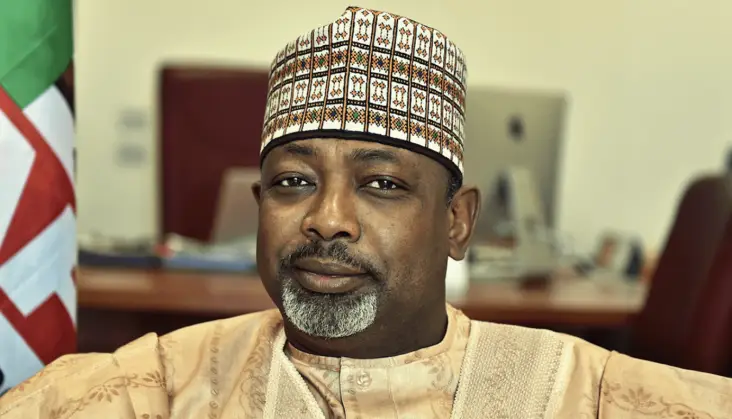
The Minister of Agriculture and Food Security, Sen. Abubakar Kyari, says plans are underway to reduce food inflation in the country.
Kyari stated this when Gov. Umar Namadi of Jigawa paid him a courtesy visit on Friday in Abuja.
He said that the ministry’s goal included ensuring food security and driving down food inflation.
“We also intend to massively produce to bring down food inflation because today the number one driver of inflation is food price inflation,” he said.
Kyari maintained that President Bola Tinubu’s agenda on food security is on course.
He said that programmes on food production would be sustained in 2024 to have a positive impact on Nigerians.
“The Ministry is focused on ramping up massive production of staple crops using technology and mechanisation to achieve this goal.
“We are grateful for the support and guidance of Mr President as we work towards a more food-secured Nigeria.
“We are poised to implement our programmes in line with his vision for the agricultural sector.
“We are determined to drive agricultural transformation, enhance productivity, and ensure that our farmers have the necessary support to thrive,” he said.
Kyari said the Ministry would embark on its planned programmes and projects and ensure their sustainability towards massive production.
“In 2024, there is a plan for the sustainability of our programmes to ensure massive food production.
“This is so that food will be available and Nigeria will have food secured in line with Mr President’s agenda on food security,” he said.
He urged stakeholders in the agricultural sector to give support to the ministry to overcome challenges and ensure a successful intervention.
“The second phase of the dry/wet season farming intervention is expected to commence this month, and we are determined to make it a success,” he said.
The minister also said the ministry has given full support for wheat production in Jigawa and other states.
He said that the governor’s visit signifies the strong partnership between the state and the federal government in ensuring food security and agricultural development in Nigeria.
Earlier, Namadi said that wheat had been cultivated on 36,000, 700, and 87 hectares, which he said gave a bright hope for self-sufficiency in wheat production.
“As of today, we have done 36,000, 700, and 87 hectares of wheat farming, which is the official record.
“We still have this as an addition to 5,000 hectares; on aggregate, we have almost 50,000 hectares of wheat farm in Jigawa,” he said.
He assured the minister that Jigawa would continue to key into the ongoing wheat dry season farming under the NAGS-AP programme.
“We have the land and resources to promote wheat farming. We have put in place robust programmes that will assist us in dry-season farming in the state.
“As of today, we are updating our farmer register so that by the time we start our rice season farming, that will properly guide us.
“We are going to cooperate with you to ensure that we achieve success in this dry season farming,” Namadi said. (NAN)


